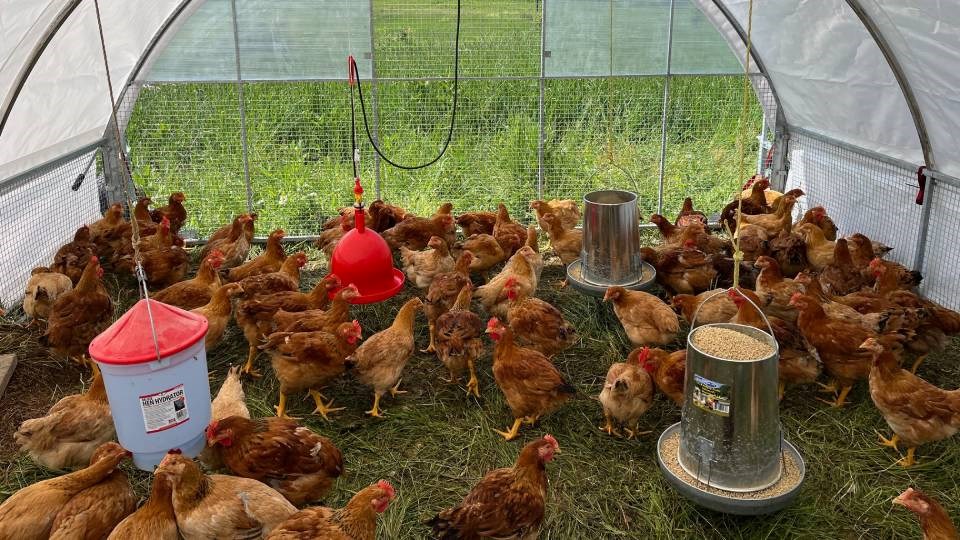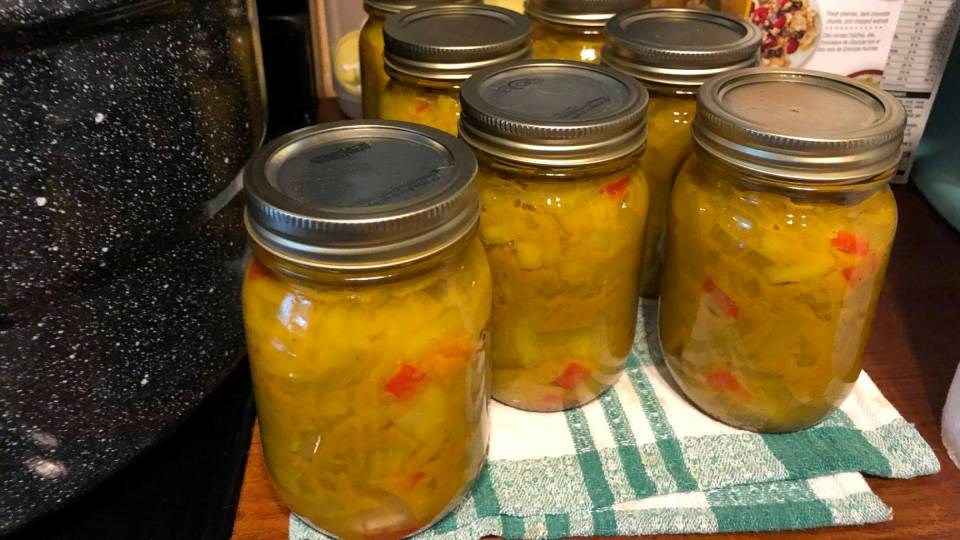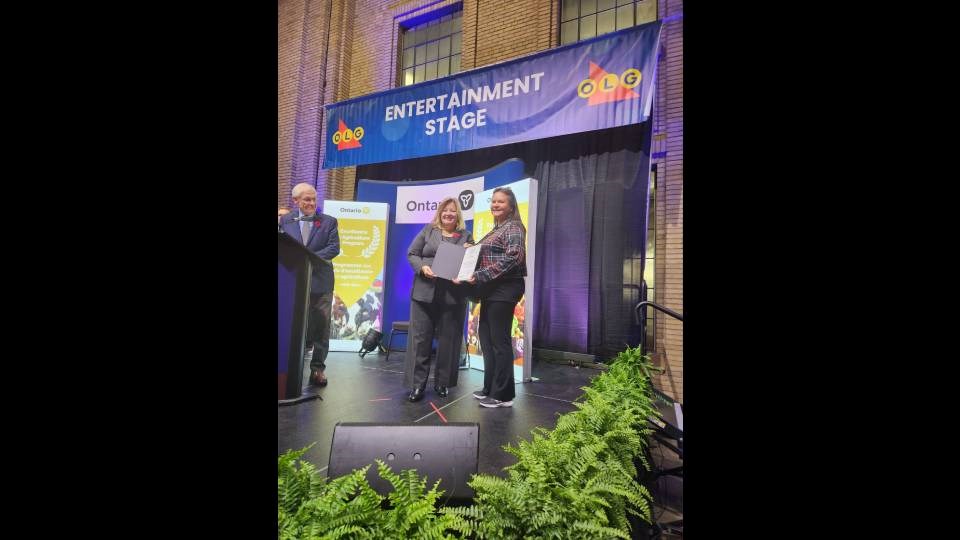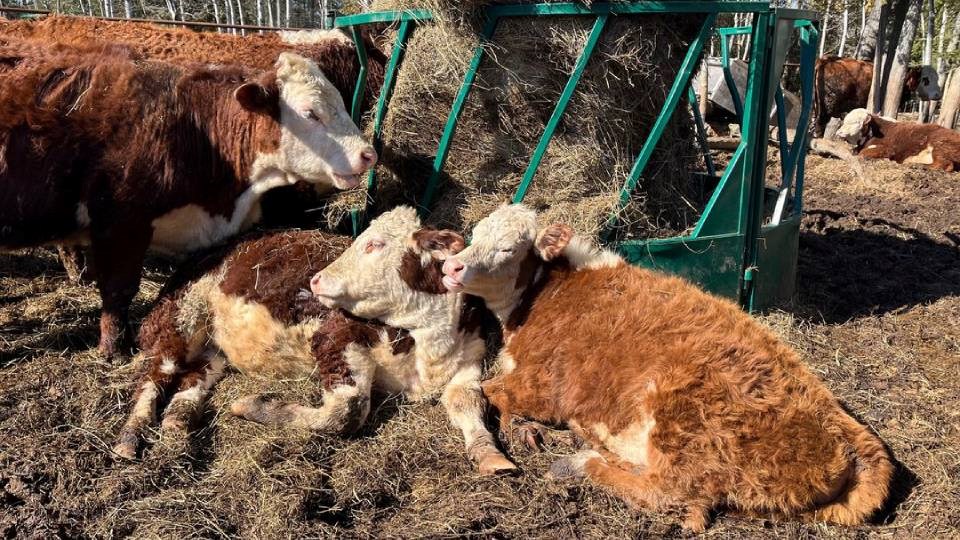In early 2020, while people were sheltering at home and pandemic-created food shortages were emptying grocery store shelves, the leadership at Wiikwemkoong Unceded Territory sensed a growing interest in its backyard gardening program.
Annette Peltier-Flamand, a certified horticulturist who trained through the University of Guelph, was hired to oversee it under the community’s Agricultural Resources Program.
Participants were set up with everything they needed to grow a backyard vegetable garden — seeds, water, compost, tilling, raised beds — along with tips and guidance where needed.
But even a passionate gardener like Peltier-Flamand couldn’t predict just how successful the program would be.
From just 30 participants in 2019, the program exploded, growing to 274 participants in 2020, and reaching its height at 403 participants in 2022.
“All of a sudden we had some interest, and it was from people that have never gardened before,” Peltier-Flamand said.
Their reasons for joining the program varied: empty grocery store shelves, skyrocketing food prices, lack of product availability. Some simply wanted to consume foods that were grown without pesticides, herbicides and fungicides.
“(Participants) were really receptive to that information, so when we do our programming, we make sure that it respects the environment and the earth,” Peltier-Flamand said.
Far from just a passing fad, the gardening program has continued — and blossomed beyond its original intent.

Today, the community maintains a herd of Hereford cattle, has joined the province’s artisanal chicken program, and is even dabbling in pork production, acquiring a sow and several piglets last year.
Meat and vegetables produced at the community-run garden — where they grow potatoes, yellow beans and corn — are donated to the food bank, which supports community members in need.
The backyard gardeners, too, are still going strong.
“When we first started, I never, ever would have thought that things would get to the point where they’ve gotten to already, because it’s only been four years,” Peltier-Flamand said.
“But, really, what we’re doing is we’re responding to what the community wants to see.”
Situated on the eastern shores of Manitoulin Island in Lake Huron, Wiikwemkoong Unceded Territory is a rural community of about 3,500 on-reserve members with a long history of agriculture.
Peltier-Flamand grew up on her grandparents’ cattle farm where they raised Herefords, pigs and chickens, and maintained three large vegetable gardens.
She recalled with fondness the days when “every family had a garden in their yard,” and she remembered helping to bring in the harvest, preserve or freeze everything, and put away their stores in the root cellar to use throughout the winter months.
Since grocery stores have made it more convenient to purchase food, much of that local knowledge around food production has been lost, she said.
“There used to be a lot of beef cattle farmers here, and now we’re down to a few,” Peltier-Flamand said.
“They’re all older and they should be retired right about now, but they have nobody to take over for them.”
But the community is hopeful of changing that.

Through the Agricultural Resources Program, community members who are interested in a career in agriculture can enroll in a training and mentorship program, developed by Peltier-Flamand, that teaches them all about vegetable gardening and livestock production.
Participants are involved with all the seasonal aspects of running a farm — how to behave around cattle, helping a cow give birth, how to raise meat chickens for sale — gaining all their hands-on experience in the community.
It gives would-be farmers all the basic skills they need to run a farm operation.
In year one, they learn small engine repair, introductory welding, and sawmilling — skills needed to fix a tractor, make on-farm repairs, and mill logs into boards for raised garden beds, respectively. Shortly, her current trainees will start learning to raise chickens, for eggs and for meat.
In year two, participants will graduate to looking after the cattle and heavy-equipment operation so they can run the tractor.
“Farmers are multi-talented people,” Peltier-Flamand said.
“When we got these cows, all of a sudden we realized that if you want to be a beef cattle farmer, you have to be able to perform veterinary procedures, you have to be a carpenter, you have to be a heavy equipment operator, you have to be a ruminant nutritionist, you have to be a welder.
“There's so much involved in caring for these cattle.”
Since acquiring the first six cattle in 2021, the herd has grown steadily. Some males have been sold as breeding bulls, while others were processed into ground beef for the food bank.
Peltier-Flamand said if all goes well this calving season, the herd will grow to 50 head of cattle.
In its first year in the artisanal chicken program last year, the community produced 600 chicks, and this year will bump that up to 900.
That meat is also donated to the food bank.
Community members who want to take on a backyard chicken coop are given all the tools needed to get started — chicks, heating lamps, feeders and waterers — and Peltier-Flamand will even show them how to process them for the first time.
Just four years into the program, Peltier-Flamand is pleased with how quickly the farming craze has spread through her community.
But she recognizes that decisions will have to be made in order to keep the program running long term.
Creating a permanent community farm is at the top of her wish list.

Currently, the cattle are housed in a barn on private land, and will eventually have to be relocated. Ideally, they would build a barn on community land, perhaps with a bunkhouse to host people in the community for training.
The program also needs a permanent funding model to keep it running long term.
Initial funding provided through Local Food Infrastructure Fund and NDN Collective was used to purchase on-farm equipment and start the cattle herd. That funding has run out.
“We were funded with COVID money when we first started out, and now that money is gone, so we have to look at more creative ways of being self-sustaining,” Peltier-Flamand said.
Some ideas they’ve talked about include hosting a local food feast and similar events that would feature locally produced foods. It would give community members a chance to sample their wares while raising capital to invest back into the program.
Eventually, Peltier-Flamand envisions building the program into a social enterprise model: producers would sell meat and produce to community members at a profit, which would enable them to continue supplying fresh food to the food bank. They might even be able to travel to nearby farmers markets one day, she said.
“The possibilities are limitless.”




